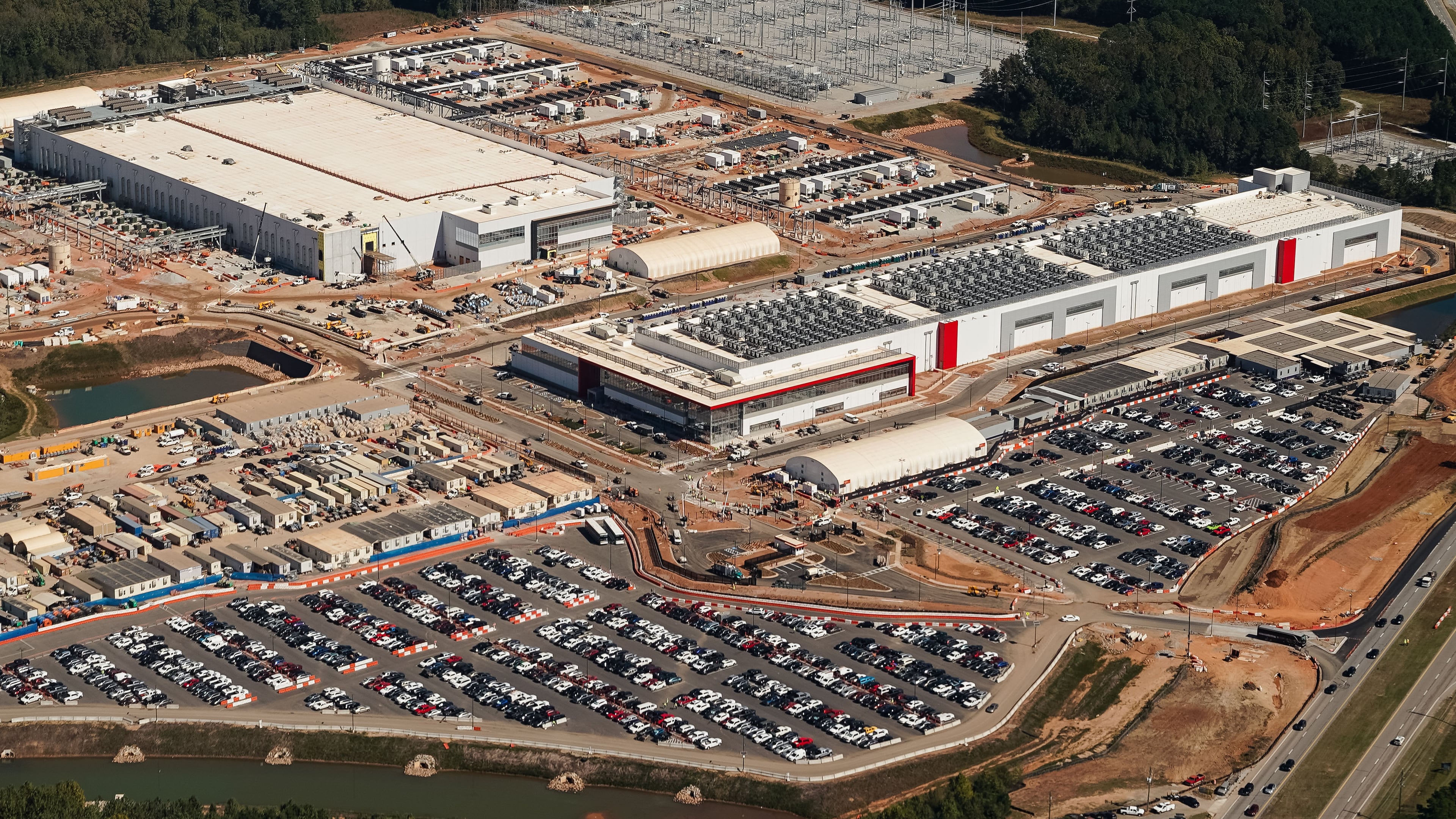OPINION: Data centers gobble electricity. Will ratepayers eat those costs?

Here’s some irony: The artificial intelligence boom that’s going to change the future means returning to the dirty past.
At a state Senate committee hearing this year, a data center industry representative proclaimed that the big hulking facilities sprouting up all over Georgia are the “infrastructure that support many sections of the 21st Century digital economy.”
The facilities also suck a huge amount of electricity, forcing Georgia Power to go on a building spree not seen in its 120-plus year industry.
Plus, the warehouses holding all that digital info are making the electric utility postpone closing its coal plants.
Twenty-first century, meet the 1850s.
To satisfy the needs of this digital economy Georgia Power says it needs to increase its generating capacity by perhaps 9,000 more megawatts by 2031. Now, megawatts don’t register much in my mind. I’m merely a flip-on-the-switch guy.
So let’s dive into the weeds.
According to a filing with the state’s Public Service Commission, Georgia Power’s peak demand this year is 16,300 megawatts (or MWs). By 2031, it is expected to be 24,500 MWs.
The company owns facilities that can generate about 14,300 MWs. But says it can also purchase another 5,900 MWs and get 700 MWs from backup sources.
If it builds another 8,000 MWs of capacity, as it might, this would increase the company’s generating capacity by more than half! (Exclamation point added for emphasis.)

Georgia Power knew it was going to spend a ton for these upgrades. In 2022, it estimated it would need to spend about $11 billion in capital improvements between 2025 and 2027. Last year, it estimated it would be $21 billion.
But there’s a footnote attached to those estimates, which was pointed out by Jennifer Whitfield, an attorney for the Southern Environmental Law Center, an org that is often up in Georgia Power’s business.
That footnote, buried in an annual filing, states, “Excludes all other expenditures not yet approved up to $14 billion.”
That means $14 billion more on top of those ever-burgeoning estimates over the next five years.
So, who pays for it all?
Enter state Sen. Chuck Hufstetler, R-Rome. He introduced a bill that would make Georgia Power charge data centers, not small customers, to pay for new infrastructure built to serve their growing needs.
Hufstetler noted there have been six rate increases in the past two years, totaling 37%, and that ratepayers have had enough. His proposed legislation did the impossible. It drew a bipartisan slew of cosponsors, including the reliably right-wing Sen. Randy Robertson and dutifully left-winger Sen. Nan Orrock.
Bobby Baker, a former member of the Public Service Commission (PSC), testified in support of the bill, noting that Georgia Power might be overestimating how much power is needed in the future. And those possibly unnecessary costs could get passed on to ratepayers.
An investigation by my colleague Drew Kann found that the power company is historically bad at estimating future electrical needs.
“It’s a huge gamble and they’re gambling with our money,” Baker told me. “I’d love to go to Vegas, just give me your credit card, Mr. Torpy.”
Um, nah.
Attorney Whitfield, who questioned the utility execs at a PSC hearing last month, told me that Georgia Power is opaque about how it will meet this need. “It’s all behind a curtain,” she said.
Meanwhile, “Our energy mix is moving backwards to fossil fuels,” she said, adding that the more coal and gas are used, the more costs are unpredictable.
“They know these data centers want clean energy, but they are giving them coal,” Whitfield said. “It’s getting ugly out there.”
Along with extending the life of coal, natural gas could be the biggest player in Georgia Power’s expansion. It’s also proposed more solar and battery storage as part of its plan.
In fact, Georgia Power seems to have softened its green pitch to the techies. Until recently, a webpage courting data centers said “Georgia Power’s commitment to net-zero emissions by 2050 is reflected in its increasing portfolio of carbon-free generating capacity.”
The new pitch says its parent company, Southern Company, “has set a goal to reduce greenhouse emissions by 50% from 2007 levels by 2030 and achieve Net Zero by 2050.”
There’s a different level of dedication between a “commitment” and a “goal.” Marriage is a commitment. Aiming to do 30 pushups by May is a goal.
Georgia Power pushed back hard against the bill that would force them to pass on new power generating costs to data centers. One state senator said he had never been so popular with lobbyists.

Aaron Mitchell, the power company’s vice president of pricing and planning, told senators that about 80% of the new power needs are because of data centers.
He added that Georgia Power reached an agreement with the PSC, promising the costs of creating more power for data centers won’t be passed onto regular customers.
“The company shall exercise the discretion under the rule changes,” he said. He made a point to emphasize “shall” while reading the new PSC rule to senators, “in a manner designed to protect customers bearing any of the costs of adding these new customers.”
Baker, the former PSC commissioner, noted that his old organization can change rules in 30 days. But a new law passed by the Legislature would be more permanent.
Hufstetler’s bill, which was widely supported, was quietly smothered in the Rules Committee.
“But Georgia Power is on record, repeatedly, (saying it will not pass on data centers’ costs),” Hufstetler said. “So we’ll see what they do.”



